City of Austin
Court halts $354 million development subsidy
Austin City Manager: Dallas discard vs Austin retread
Will lawsuit blow up Project Connect train tracks?
New Restrictions Proposed for Lobbyist Fundraising
Posted Sunday, January 22, 2012 9:30pm
Updated Friday, January 27, 2012 3:20pm
Lobbyists Can Only Give Candidates $25 But
Can Collect Unlimited Contributions for Them
by Ken Martin
© The Austin Bulldog 2012
Why would city regulations prohibit a registered city lobbyist from contributing more than $25 to an officeholder or candidate for mayor or city council, but allow a lobbyist to solicit and bundle unlimited contributions on behalf of officeholders and candidates?
That was a question the 2012 Charter Revision Committee dealt with in its meeting last Thursday.
Based on the case presented by its five-member working group, the Committee voted 12-1 (with David Butts and Kathleen Vale absent) to approve a recommended change that would limit the amount of bundled contributions by registered city lobbyists to a maximum of $1,750 per candidate per election cycle for individual bundlers and $3,500 per candidate per election cycle for firms that bundle. This restriction would not apply to anyone who is not a registered city lobbyist.
This restriction would put a severe crimp in the kind of fundraising that some registered city lobbyists are doing for current officeholders.
The Austin Bulldog’s analysis of the most recent contribution reports filed by the four members of the City Council running for re-election—Mayor Lee Leffingwell, Mayor Pro Tem Sheryl Cole, and Council Members Mike Martinez and Sheryl Cole—indicates that two registered city lobbyists bundled a total of $33,500 $44,470 in single reporting period for Leffingwell, Martinez, and Spelman. (Added Spelman’s bundled contributions to previous total January 27, 2012.)
In reality they bundled even more than that, but the contribution reports report filed by Cole and Spelman list lists only the names of bundlers and do does not identify the specific contributions these lobbyists solicited on their her behalf.
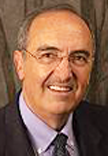 Lawyer-lobbyist David Armbrust of Armbrust & Brown PLLC bundled 24 contributions totaling $8,400 for Leffingwell, and 29 contributions totaling $10,150 for Martinez, and 36 contributions totaling $11,200 for Spelman. According to the lobbyist registration information posted on the city’s website, Armbrust has 17 clients involved in building, real estate and real estate development, financial services, hotels, property management, energy, and waste disposal.
Lawyer-lobbyist David Armbrust of Armbrust & Brown PLLC bundled 24 contributions totaling $8,400 for Leffingwell, and 29 contributions totaling $10,150 for Martinez, and 36 contributions totaling $11,200 for Spelman. According to the lobbyist registration information posted on the city’s website, Armbrust has 17 clients involved in building, real estate and real estate development, financial services, hotels, property management, energy, and waste disposal.
 Lawyer-lobbyist Michael Whellan of Graves Dougherty Hearon and Moody bundled 26 contributions totaling $8,050 for Leffingwell and 20 contributions totaling $6,900 for Martinez. City lobbyist registration records indicate Whellan has 13 clients, including property owners, real estate developers, taxi cabs, healthcare provider, and music.
Lawyer-lobbyist Michael Whellan of Graves Dougherty Hearon and Moody bundled 26 contributions totaling $8,050 for Leffingwell and 20 contributions totaling $6,900 for Martinez. City lobbyist registration records indicate Whellan has 13 clients, including property owners, real estate developers, taxi cabs, healthcare provider, and music.
The ambiguity of the current City Code regarding how to report bundled contributions was also addressed by the Charter Revision Committee. Members present voted unanimously to recommend more stringent and accessible disclosure of all bundled contributions.
With no discussion, the Charter Revision Committee also voted unanimously to recommend that Article X, Section 2 of the City Charter be clarified to indicate that ex-officio members of the Planning Commission are non-voting members whose attendance does not affect quorum requirements. Both the City Council and the Planning Commission had referred this matter to the Committee for consideration.
These recommendations will be forwarded to the Austin City Council, along with all the recommendations previously approved by the committee, for possible action.
What City Code requires
It’s Pressley vs. Martinez
First-time Council Candidate to Oppose
by Ken Martin
© The Austin Bulldog 2012
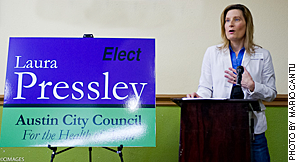 Laura Pressley kicked off her campaign December 10 vowing not to let the so-called “gentlemen’s agreement” that resulted in having one African American and one Latino on the council stop her from opposing a minority member of the City Council.
Laura Pressley kicked off her campaign December 10 vowing not to let the so-called “gentlemen’s agreement” that resulted in having one African American and one Latino on the council stop her from opposing a minority member of the City Council.
At Friday’s press conference she proved it. She announced she is targeting incumbent Mike Martinez, who was first elected in 2006 and is now seeking a third term.
Martinez did not return a request for comment left on his council office recorder. His campaign website provides no telephone number.
Martinez has raised $70,460 for his re-election bid and had $64,654 in the bank as of December 31. He has campaign kickoff fundraiser scheduled for Wednesday at Nuevo Leon Mexican Restaurant, 1501 E. Sixth St., starting at 5:30pm.
Pressley raised $3,100 and had $2,332 in the bank through December 31. She has not yet hired a consultant or campaign manager.
Pressley told The Austin Bulldog she had been advised she needed to raise $200,000 to $250,000 for the campaign. “That’s what we’re going to do,” she said. “We will easily have $40,000 to $50,000 by March.”
Unlike many of the winning candidates in recent council elections, she does not plan to loan her campaign money. “If people don’t support us we will not win,” Pressley said, adding, “I have a lot of donors waiting for us to declare against Martinez.”
In her press conference Pressley said there were concerns about her going against the gentlemen’s agreement from the 1970s but, “We’re not in the seventies anymore. Designating one seat (for a Latino) is a serious limitation.
“There should be two or three Latino seats if we get real geographic representation in this city. We really support the 10-1 plan.” She was referring to the proposal initiated by Austinites for Geographic Representation, a grass-roots citizens initiative to get on the ballot a proposition to establish a nonpartisan Independent Citizen Redistricting Commission that would draw 10 council districts that the Austin City Council would have no choice but to adopt. The group’s plan calls for only the mayor to continue being elected at-large.
“Over the years Mike Martinez has done very little to help the Hispanic community,” Pressley said. “We need a change at City Hall—regardless of skin color—and directly do what’s important for East Austin and all of Austin.”
About a dozen attended the press conference, many of which were Latinos. All said they’re fed up with Martinez, including long-time East Austin activists Marcelo Tafoya, Gavino Fernandez, Jose Quintero, Fidel Acevedo, and a younger Danny Perez. All professed strong support for Pressley and no concern about the fact that her victory would displace the council’s only Latino.
Interviews with some of them,before the press conferenceat the YMCA Learning Center at 2121 E. Sixth Street, revealed a deep resentment over what they perceive as Martinez’ lack of attention to problems.
“It doesn’t matter,” Quintero said of the idea a white woman might beat Martinez. “He’s not helping us.”
Tafoya agreed, saying, “We decided a while back to get rid of ‘Evil Knievel.’ We decided that the gentlemen’s agreement is BS. It hasn’t served the minority community at all.”
Tafoya, a former district director for District 12 of the League of United Latin American Citizens (LULAC), said the minority members of the council were “never elected by us, they never represented us, and never even considered us. They make token gestures and the council votes against us. We’re sick and tired of it.”
Pressley said she met with Latino community members in December and kept it quiet. “We would not do this without Hispanic support.”
Critical of council decisions, offers ideas
Bill Spelman’s Re-election Campaign
Kickoff Draws an Appreciative Crowd
University of Texas Professor, Council Member
Wants to Keep Austin Weird, and Explains Why
by Ken Martin
© The Austin Bulldog 2012
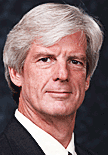 Council Member Bill Spelman launched his campaign for a third term on the Austin City Council at Scholz Garten Tuesday evening to boost his campaign war chest beyond the $31,600 he had raised through December 31, according to the contribution report filed Tuesday.
Council Member Bill Spelman launched his campaign for a third term on the Austin City Council at Scholz Garten Tuesday evening to boost his campaign war chest beyond the $31,600 he had raised through December 31, according to the contribution report filed Tuesday.
Jim Wick, Spelman’s campaign manager, said in an e-mail the campaign would prefer not to give a figure of how much was raised at the event, “...but we were happy with the depth and breadth of the contributions (and contributors) we received last night and in the days since December 31.” He said 125 people attended. The audience was much smaller when Spelman spoke, as some supporters came by for brief visits and left to meet other commitments.
Spelman said he recently noted the camaraderie of Travis County Democrats at a recent annual dinner and attributed that spirit of cohesiveness to having a common enemy, like Governor Rick Perry.
Although elections to fill seats on the Austin City Council are nonpartisan, Spelman said the citizens of Austin need a common enemy too. He reeled off a list of the things that make Austin unique, and said, “I’m going to argue that our real enemy, our common enemy, is all the things that threaten that.”
“Every time someone tells me, ‘Austin is the only city in the country that doesn’t have this or doesn’t do that,’ a small part of me is just a little bit giddy. So long as we’re smart enough about it, keeping Austin weird is not just a semi-cool slogan, it’s a real means of survival in a brutal, difficult, and changing world.”
In listing some of the things accomplished in his current term, Spelman mentioned:
• Launching, with Mayor Pro Tem Sheryl Cole, the Neighborhood Match Program that “gives neighborhoods a chance to decide for themselves what public works they need.”
• Pushing the Austin Water Utility to move forward as fast as possible on its water reclamation program. “In an unprecedented drought—one that climatologists tell us is going to last in some form or fashion for the rest of our lifetimes—it only makes sense to use water twice, not just once.”
• Enacting payday lending restrictions. “Congress has not yet dealt with the dramatic increase in payday lending, but 400 percent interest-rate charges pose an imminent threat to the well-being of thousands of Austinites, almost all of them of modest means. The Lege did not act. We did.”
• Regulating pregnancy counseling centers. Women “need to know there are significant limitations to the kind of help offered in the crisis pregnancy center. The State Legislature doesn't want to tell you. We did.”
• Helping Foundation Communities to open volunteer tax preparation centers that “over the past few years has put $29 million of tax refunds into the hands of poor and moderate-income Austinites.”
“All of this is really weird,” Spelman said. “Cities pick up trash, they sell potable water, and they answer 911 calls. They do not typically give neighborhoods choices, use water twice, regulate lenders and pregnancy centers, or help people save money. Some of them do. But that's what our changing world is calling for and that's what we need to do.
“Our continued ability to adapt, working within our Austin DNA, is critical to our surviving and thriving as a city in coming years. Weird isn't just a slogan. It's a way of life.”
Running unopposed at the moment
Background Investigation: Sheryl Cole
Background Investigation: Sheryl Cole
Here’s What the Public Records Say About
the Council Member Running for Reelection
by Rebecca LaFlure
© The Austin Bulldog 2012
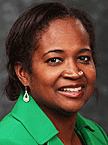 In the nearly six years since Sheryl Cole was elected as the first African-American woman on the Austin City Council, she has championed a project aimed at spurring redevelopment along Waller Creek, advocated for increased housing options for low-income families, and voted in favor of the controversial $750,000 settlement in the police shooting death of teenager Nathaniel Sanders II.
In the nearly six years since Sheryl Cole was elected as the first African-American woman on the Austin City Council, she has championed a project aimed at spurring redevelopment along Waller Creek, advocated for increased housing options for low-income families, and voted in favor of the controversial $750,000 settlement in the police shooting death of teenager Nathaniel Sanders II.
Now, a month after Cole launched her campaign for a third term, The Austin Bulldog searched beyond the decisions made at council meetings and dug into Cole’s professional, political, and personal background.
We used an organized plan to find, copy, and publish public documents—including business, real estate, voting, criminal and court records—so citizens can form their own conclusions about their elected officials in the months leading to the May 2012 election.
We invite readers to study the documents and let us know if there are any important details we overlooked, or areas that warrant further investigation.
Committee Debates How to Elect Council
Over Pure Districts vs. Hybrid System
©The Austin Bulldog 2012
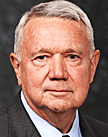 Austin Mayor Lee Leffingwell was the first of many people to address the 15-member Charter Revision Committee last Thursday, calling for unity in getting behind whatever recommendation is made concerning some form of geographic representation in the election of City Council members.
Austin Mayor Lee Leffingwell was the first of many people to address the 15-member Charter Revision Committee last Thursday, calling for unity in getting behind whatever recommendation is made concerning some form of geographic representation in the election of City Council members.
“What is important is that all of us who support geographic representation be on the same page,” Leffingwell said. “Otherwise whatever we propose will not pass.”
Leffingwell urged the committee to strike a compromise for a unified proposal that everyone who supports geographic representation could get behind and support with great enthusiasm.
“We may not get a chance to do this again for a very long time if what we put on the table fails,” he said.
It’s been a decade since the May 2002 election in which voters last rejected a proposal. Proposition 3 on that ballot was the sixth attempt to gain voter approval for some form of electing council members from districts. Like many previous attempts, the plan offered would have created eight geographic districts. But this time the measure added two council member slots to be elected at-large, along with the mayor at-large. The proposition failed 42 percent to 58 percent.
Although nearly every member of the current Charter Revision Committee favors some form of geographic representation in council elections, the mayor’s lofty goal of achieving unity in the committee’s recommendation appears difficult if not impossible to achieve.
At a three-plus-hour meeting January 5, individual committee members became more vocal than ever in taking a strong public stance about whether they favored the 10-1 proposal being petitioned for by Austinites for Geographic Representation or some hybrid plan that would allow citizens to cast ballots for some of the council members to be elected citywide in addition to establishing geographic districts.
The 10-1 plan petition includes a requirement to establish a nonpartisan Independent Citizen Redistricting Commission that would draw 10 council districts that the Austin City Council would have no choice but to adopt. Under this plan only the mayor would continue to be elected at-large.
Any other plan put on the ballot by the City Council may not have an independent districting commission. Committee Chair Gonzalo Barrientos, a former state senator, said the normal procedure is to appoint a commission that draws the lines with expert assistance from attorneys. Critics of that method say it allows the incumbents to draw boundaries that favor their reelection.
Ultimately the U.S. Department of Justice must approve any change in the election system for compliance with the Voting Rights Act of 1965.
Advocates for the 10-1 plan
Newsletter
Keep up with the best investigative reporting in Austin.
© The Austin Bulldog. All rights reserved.
2028 E. Ben White Blvd. #240-6115 Austin TX 78741







